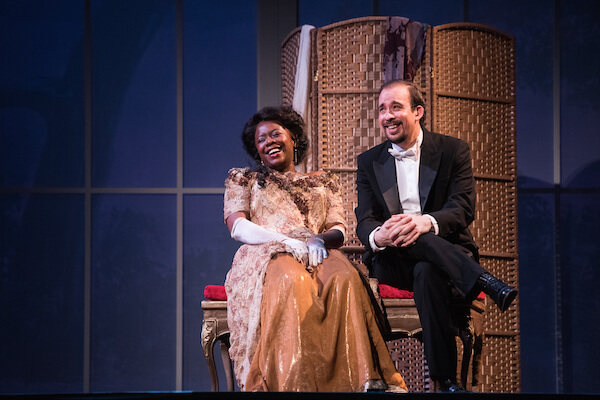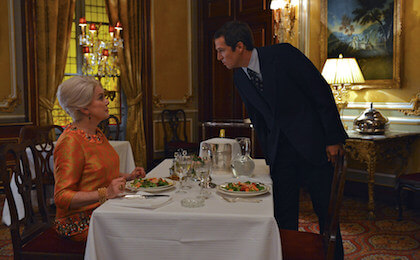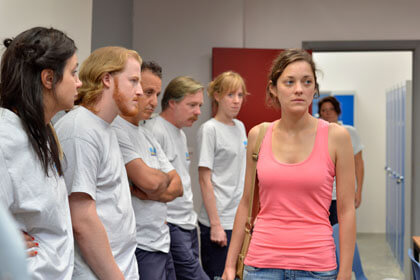Adèle Haenel in Jean-Pierre and Luc Dardenne’s “The Unknown Girl,” which opens September 8. | CHRISTINE PLENUS/ SUNDANCE SELECTS
With their third film, “La Promesse,” Belgian directors Jean-Pierre and Luc Dardenne essentially reinvented neo-realism and made it relevant in European cinema again. Most Americans at the time probably thought they were brand-new filmmakers when “La Promesse” was released in 1997. I know that I did myself, but they had actually made two previous narrative films and a string of documentaries in much different styles. To this day, despite the critical and arthouse success of their work — which has gone on to win the top prize at Cannes twice and even earn Oscar nominations — these earlier films have only circulated in the US in the context of Dardenne brothers retrospectives.
Once they settled on neo-realism — spiced with the heavy influence of French director Robert Bresson — as their house style, they stuck with it. However, “The Unknown Girl” is the weakest narrative film they’ve made so far and the first one to suggest they’re longing to escape from its bonds.
Dr. Davin (Adèle Haenel) is obsessed with a dead African woman she has seen only in closed-circuit TV footage. The woman had tried to enter her office at a time when Dr. Davin was there, but she ignored the buzzer. Just afterwards, the woman was murdered and discovered as a corpse with a fractured skull on the banks of a river in Liege. Approached by police, Dr. Davin tries her hand at investigating the case herself, which involves questioning some of her patients. She proves to be a fairly skilled detective.
Shifting their customary style, Dardenne brothers tackle a sleuthing saga — uninspiringly
The signature image of the Dardenne brothers’ films is taken from a handheld camera frantically trying to keep pace with a walking person, usually focusing on his or her neck. Their scenes of actor Olivier Gourmet in their fifth film, “The Son” (my personal favorite), epitomize this. However, they’ve always been extremely talented directors of actors, and working with them has resulted in a few originally non-professional performers going on to have careers in French cinema. In their last film, “Two Days, One Night,” they worked with a full-fledged movie star, Marion Cotillard, for the first time, and the results were tremendous.
I think Cotillard’s work in “Two Days, One Night” is one of the best female performances of the best decade — it capped off a year in which she also gave a great performance in James Gray’s “The Immigrant” — so it’s not exactly a slight to Haenel to say that she’s not nearly as charismatic as Cotillard. Still, there’s a fundamental blandness to her character and to Haenel’s acting. Cotillard’s character was both incredibly willful and dependent on tranquilizers to make it through the day; Dr. Davin never seems anywhere nearly as troubled as the script sometimes tells us she’s supposed to be about being complicit in a woman’s death. The Dardenne brothers’ direction is much calmer than usual, with their sometimes wild use of handheld camerawork almost entirely restrained. But they didn’t really find an equally compelling style with which to replace it.
In terms of structure, “The Unknown Girl” actually resembles “Two Days, One Night” a bit. Both films are about women frantically tracking people down while also trying to get on with their lives. Here, the Dardenne brothers show quite a bit of their heroine’s professional life, depicting her diagnosing a man with emphysema in an early scene. “Two Days, One Night” showed a much less privileged woman desperately arguing with her co-workers about her right even to have a professional life in the first place. The Dardenne brothers’ films have generally shown impeccable politics and been acutely sensitive to the nuances of class. “The Unknown Girl” is the first one that seems to adopt the perspective of a rather blinkered upper-middle-class person. White guilt seems to be Dr. Davin’s biggest problem, and although it’s not an uninteresting subject to make a film about, the Dardenne brothers didn’t succeed in coming up with anything much to say about it.
I’m not the first critic to point out that “The Unknown Girl” is basically a genre film. The problem is that it feels like an incredibly half-hearted and self-congratulatory one. The Dardenne brothers have taken some tentative steps out of their comfort zone, but it didn’t really work. An average episode of the classic TV cop show “Homicide: Life on the Street,” whose general visual style was actually not far from that of the Dardenne brothers’ films, is far more compelling than the detective story outlined in “The Unknown Girl.”
If they want to go further in this direction, they ought to adapt a novel by Dennis Lehane or George Pelecanos (or their French and Belgian counterparts), and perhaps try a new style much closer to film noir. I’m glad they recognized that they ran the risk of falling into formula and tried something different, but this film just doesn’t quite gel.
THE UNKNOWN GIRL | Directed by Jean-Pierre and Luc Dardenne | Sundance Selects | In French with English subtitles | Opens Sep. 8 | IFC Center, 323 Sixth Ave. at W. Third St. | ifccenter.com



































